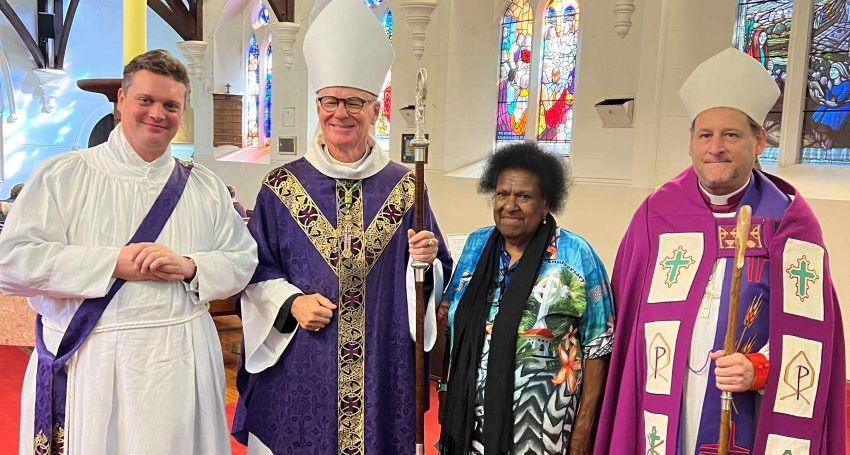
Kirralee Nicolle
13 April 2022
A prominent voice for the Anglican church in the Torres Strait recently countered the widely-held belief that early missionary involvement in the island nation was an example of colonialist oppression.
In an address to parishioners at St John’s East Malvern on Laetare Sunday, Aunty Dr Rose Elu spoke of the true significance of the Coming of the Light, a yearly celebration commemorating the first arrival of missionaries to the Torres Strait.
Dr Elu, a Synod Representative for the Torres Strait Non-Geographic Parish and an Executive Member of the National Aboriginal and Torres Strait Islander Anglican Council, told how “[the missionaries were] merely bringing us the Gospel of Christ and trying to explore how we embrace the light of Christian faith in our own ways.”
Dr Elu, however, refuted the idea that missionaries had ‘brought Jesus’ to the islands, as she stated that “God was on both sides of the beach”.
“It is important for all Anglicans to appreciate that Jesus was present in my people before the Bible – before the Light of the Gospel– came to the Torres Strait Islands on that special day in 1871.
“Our spirituality lies in the land, sea and sky, and since time immemorial our people have believed in a Creator – we just did not know yet that the Creator was the Christian God.
“While the Coming of The Light – the coming of the holy Bible – made this connection for us, we had already received God before the arrival of the English and Melanesian missionaries because Jesus was already with us.”
Dr Elu told how following the adoption of Christian beliefs, the people groups of the Torres Strait ceased to engage in tribal warfare and other violent practices.
Dr Elu also told how Christian missionaries sought to preserve rather than alter positive cultural elements among the peoples of the Torres Strait.
“After the missionaries understood and learnt our ways,” Dr Elu said, “they let us maintain our languages and some of our practices.”
Dr Elu also told how as a child she had felt distanced from God due to the prevalence of white-skinned children depicted in the Bibles she read at Sunday School.
She emphasised the importance of ongoing reconciliation in the life of the church, calling it a willingness to “bring back together” that which has been separated.







